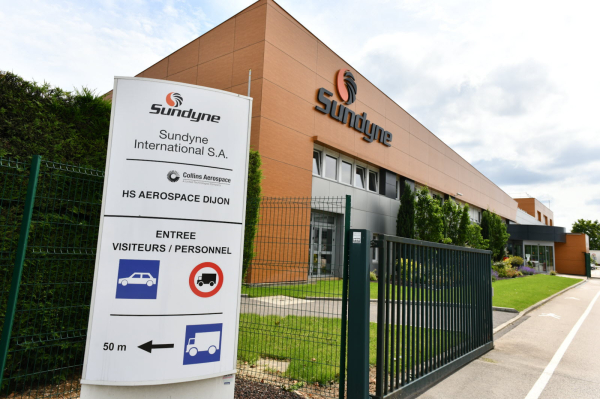
Prime Minister Ulf Kristersson presented Sweden’s priorities for the upcoming EU Council presidency to Rijksdag lawmakers on Wednesday as concerns that the supporting far-right Sweden Democrats could influence the presidency on key issues like climate change continue to grow.
In January, Sweden will take over the six-month rotating EU Council presidency, meaning that Swedish ministers will lead negotiations in the Council and try to find compromises with the EU Parliament.
“Sweden is taking over the Presidency at a time when the European Union is facing unprecedented challenges. A greener, more secure and freer Europe is the foundation of our priorities,” Kristersson, whose centre-right government is supported by the far-right Sweden Democrats (SD), told the Rijksdag on Wednesday.
Before lawmakers, Kristersson presented the EU presidency’s priorities, which are to focus on security, competitiveness, the green transition, democratic values and the rule of law – mirroring those issued earlier this year by the previous Social Democratic government.
The opposition, however, has raised the alarm regarding the upcoming presidency, pointing to the influence SD could have on key EU legislations, such as the fight against climate change and upholding the rule of law.
Green MEP Jakop Dalunde, for example, told EURACTIV that he was concerned about SD’s overall influence.
“That Kristersson still claims that he and his government will be able to contribute to the protection of the rule of law while dependent on the Swedish Democrats is both naive and extremely concerning”, Dalunde said.
According to him, Kristersson’s government is dependent on a party that has opposed the withholding of EU funds to countries which do not abide by the principles of the rule of law, such as Hungary, echoing earlier declarations of the former Social Democrat Prime Minister Magdalena Andersson.
“Choosing to cooperate with a party that describes itself as Sweden’s most critical of the EU, that finds it difficult to support the EU’s fundamental values, that ignores the climate targets and is critical of the EU’s climate policy – it is clearly controversial”, Andersson declared on Tuesday.
In late November, Kristersson assured that his government was pro-European during a press conference with European Parliament President Roberta Metsola in Brussels.
“We are a pro-European government. We are also a pro-market government, a pro-NATO government, a pro-transatlantic government,” he said, adding that it did not mean, however that the three parties composing his government always had the exact same vision on which issues should be on the agenda.
The leading centre-right Moderates, the Christian Democrats and the Liberals all form Sweden’s government. The far-right Sweden Democrats that took 20% of the votes in September’s general elections were left out of the government despite their political weight in exchange for getting large parts of their tough migration policy through.
Climate change deniers
According to Dalunde, the list of EU files that the Swedish government has agreed to indicates that the far-right party will have a say in “key climate and environmental files.”
“It shows black on white that the far right will influence the government’s actions during the presidency”, said Dalunde. This comes as no surprise, he added, noting that “since the new government gained power, they have consistently used their voice in the Council to water down climate ambitions and targets.”
The SD party has a history of denying climate change, with its leader Jimmie Åkesson declaring on TV that there was no scientific proof of a climate crisis.
“I haven’t seen any scientific support for this being the case”, he said on news channel SVT in November. “It’s very reminiscent of how the immigration debate sounded a number of years ago. You can’t question or take a different perspective because then you’re called a climate denier,” he added at the time.
EURACTIV has reached out to several Sweden Democrats officials but has not yet received any answer.
(Charles Szumski | EURACTIV.com)
Source: euractiv.com



